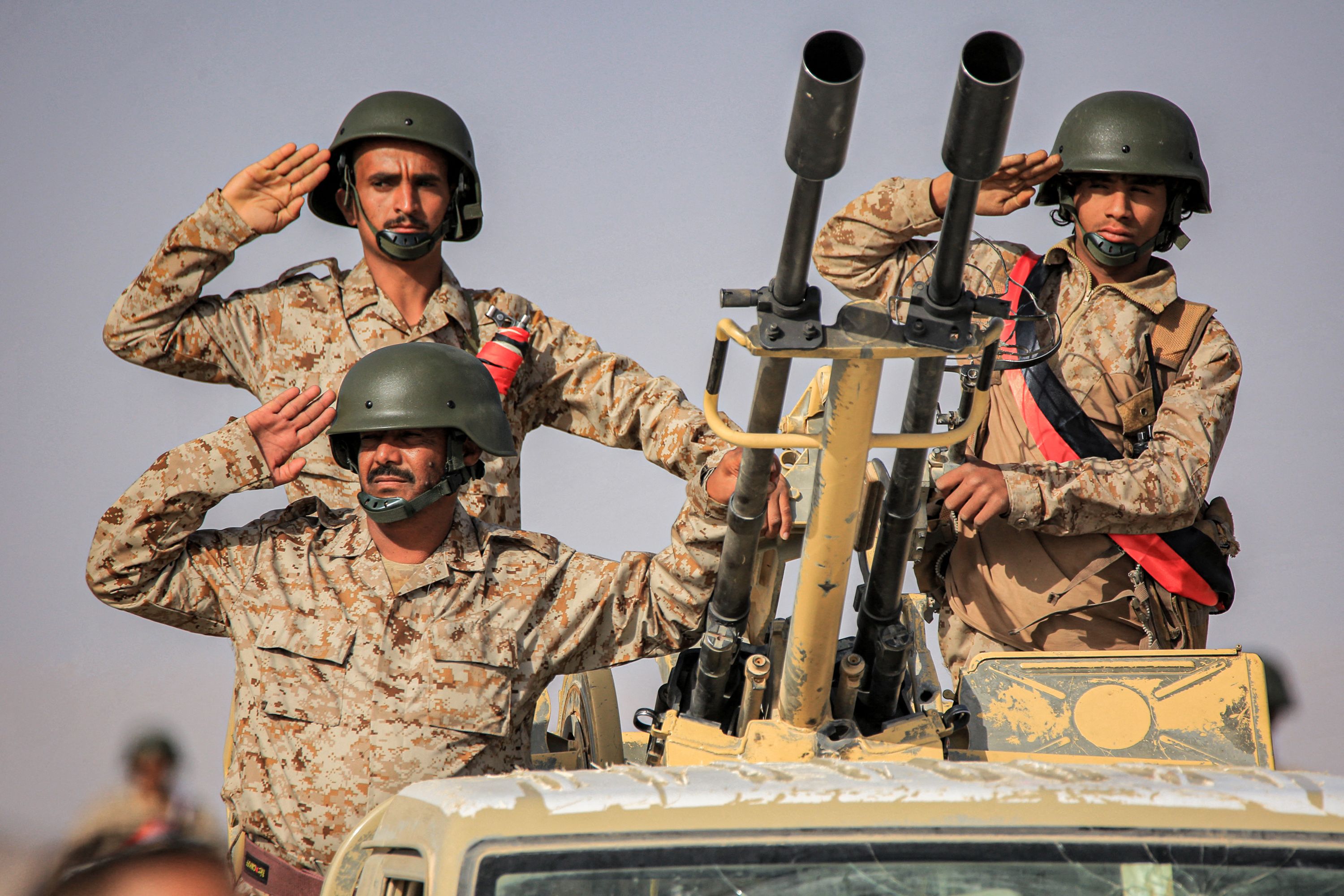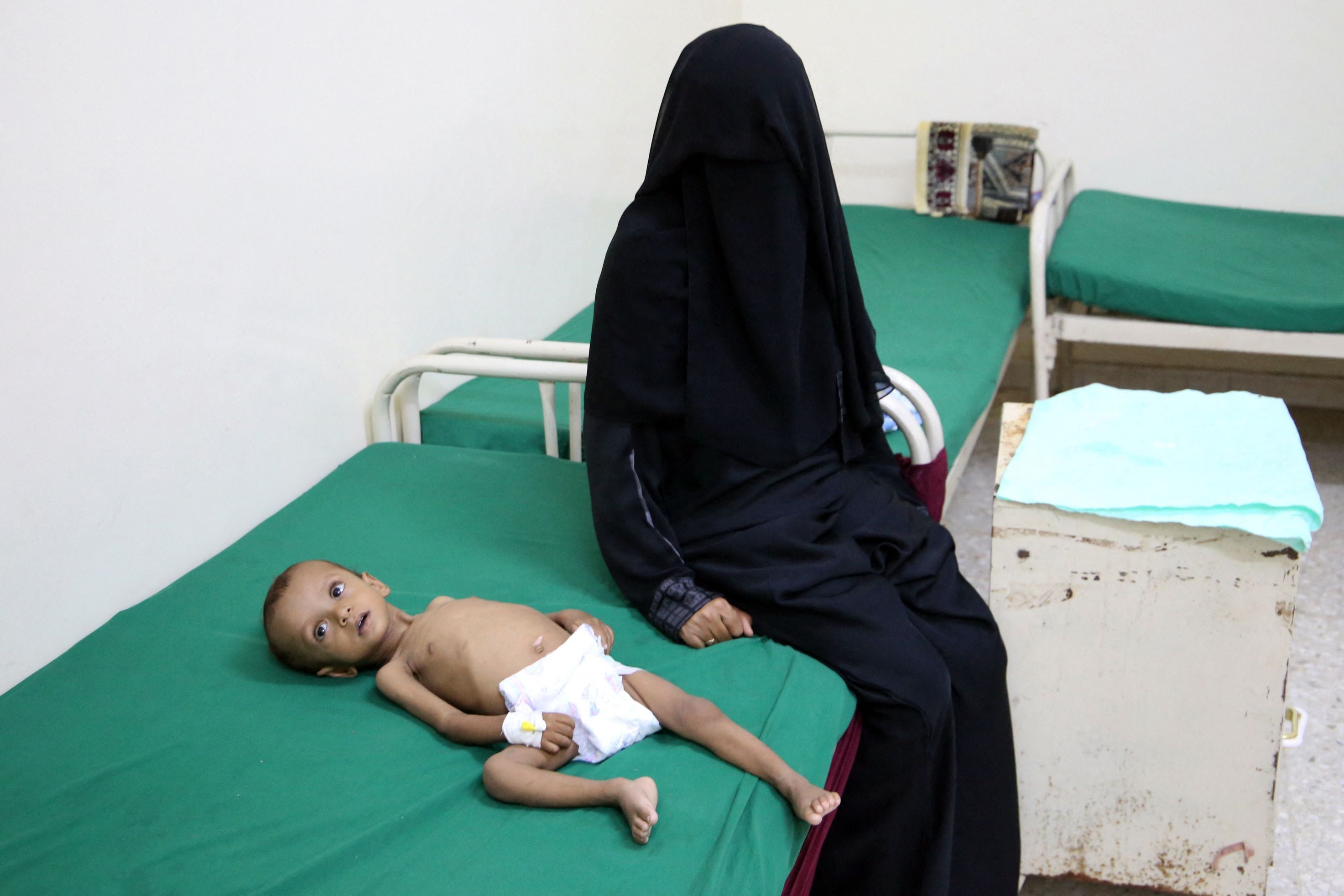Flying blind: US accuses itself of selling weapons for Yemen war without assessing civilian harm
Audit by watchdog says US officials fail to follow through on the civilian impact of military sales to Saudi Arabia and UAE

Your support helps us to tell the story
From reproductive rights to climate change to Big Tech, The Independent is on the ground when the story is developing. Whether it's investigating the financials of Elon Musk's pro-Trump PAC or producing our latest documentary, 'The A Word', which shines a light on the American women fighting for reproductive rights, we know how important it is to parse out the facts from the messaging.
At such a critical moment in US history, we need reporters on the ground. Your donation allows us to keep sending journalists to speak to both sides of the story.
The Independent is trusted by Americans across the entire political spectrum. And unlike many other quality news outlets, we choose not to lock Americans out of our reporting and analysis with paywalls. We believe quality journalism should be available to everyone, paid for by those who can afford it.
Your support makes all the difference.For seven years, the United States has been flooding powerful Gulf states with advanced weapons worth tens of billions of dollars but has little idea whether its helicopters, missiles, and bombs are exacerbating the humanitarian crisis in Yemen, a Washington watchdog report claims.
A report by the Government Accounting Office, which monitors US spending, says neither the Pentagon nor the State Department could show if they had properly investigated allegations that any of the nearly $55 billion in weapons it has sold to allies Saudi Arabia and the United Arab Emirates between 2015 and 2021 had been improperly used to harm civilians in Yemen.
“The conflict in Yemen is a pressing humanitarian concern, and the U.S. government lacks a clear and complete picture of how military support provided to Saudi Arabia and UAE has contributed to or reduced civilian harm in Yemen,” says the report.
The GAO findings come as US president Joe Biden plans to renege on his own campaign promise to isolate the Saudi regime. Next month he plans to visit Riyadh, where he will pay his respects to the ageing King Salman and meet with his heir, the Crown Prince Mohammed bin Salman, whose henchmen butchered Washington Post columnist Jamal Khashoggi in 2018.
The killing prompted an outcry in the west and raised questions about US and British support for the Saudi war in Yemen. Riyadh and Abu Dhabi are fighting against the Iranian-backed Houthi militia for control of the country in an ongoing conflict that has become one of the manmade worst humanitarian disasters in the world.
Candidate Biden in the run-up to 2020 elections vowed to reevaluate Washington’s relationship to Saudi and make a pariah of Prince Mohammed. But faced with high oil prices, Mr Biden is now seeking to repair relations with Riyadh in an effort to get the oil-rich kingdom to ramp up production.
The GAO report comes amid tough questions about US relations with the Gulf states following reports that retired General John Allen, the former president of the prestigious Brookings Institute think tank, is under federal investigation for allegedly lobbying on behalf of Qatar in violation of disclosure laws.
According to the 75-page GAO report, the vast majority of the military equipment sold to the Gulf nations required follow-up on civilian impact that has not been sufficiently completed.
“Despite several reports that airstrikes and other attacks by Saudi Arabia and UAE have caused extensive civilian harm in Yemen, [the Department of Defence] has not reported and State could not provide evidence that it investigated any incidents of potential unauthorised use of equipment transferred to Saudi Arabia or UAE,” said a summary of the report.

The report suggested that US officials in the Biden administration reclassified weapons such as medium-range missiles, which can devastate civilian or military targets, as “defensive”, a way of working around White House policies meant to halt sales of offensive weapons to Yemen.
“State officials told us they have no specific definitions for what constitutes ‘offensive weapons’ and ‘defensive weapons’ to direct the sale of weapons to Saudi Arabia,” said the report, adding that military officials “could not provide a definition for equipment that is defensive in nature when we asked how they distinguish between equipment used for defensive purposes and equipment used for offensive purposes”.
Under US law, weapons exports must be vetted for their potential to harm civilians before they are sold, and the report credits both military and diplomatic officials for assessing potential sales as well as attempting to grapple with the humanitarian impact of the Saudi-led coalition’s Yemen operations. But it cautioned that US officials had failed to ascertain whether US military weapons were specifically being used to harm civilians.
Pentagon officials “should be alert to and report any indication that U.S.-origin defence articles are being used against anything other than legitimate military targets,” said the report.
Join our commenting forum
Join thought-provoking conversations, follow other Independent readers and see their replies
Comments